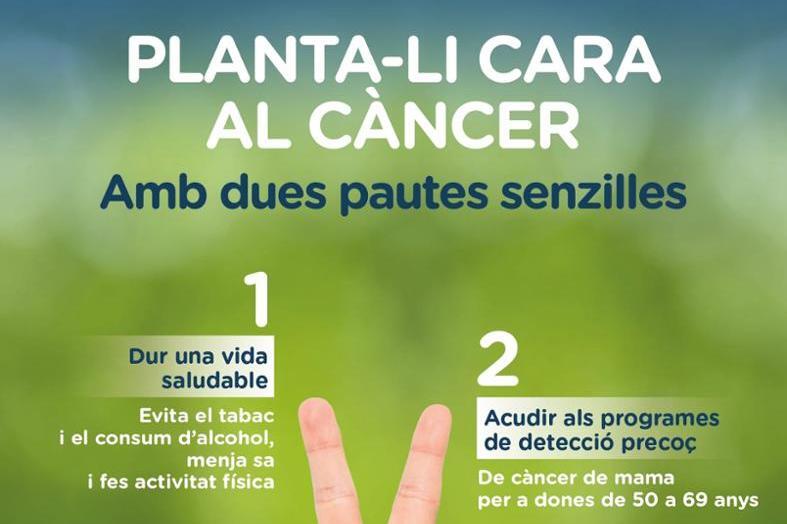World Cancer Day is a global day that this year, under the slogan “For Fairer Treatments,” calls for awareness of the importance of prevention, adoption of healthy lifestyle habits, early detection tests and support for those fighting this disease.
Thus, the Spanish Cancer Registry Network (REDECAN) estimates that 286,664 cases will be diagnosed in 2024, representing an increase of 2.6% compared to the previous year. Looking at men and women, the most common cancers were colorectal (44,294 new cases), breast (36,395), lung (32,768), prostate (30,316), and urinary bladder (22,097). If we talk about the most common types of cancer among men, they are cancers of the prostate (30,316), colon and rectum (27,009), lung (22,483), and urinary bladder (18,247). In contrast, among women there are breast (36,395), colon and rectum (17,285), lung (10,285), and uterine body (7,305). In addition, lung cancer continues to increase among women, due to the increase in tobacco addiction in women from the 1970s onwards. Hence the trend in recent years is that lung and bladder cancer will decrease in men and lung cancer will decrease. It will continue to rise significantly among women in the coming years.
In general, the reasons for this increase are due to population growth, aging of the population, and unhealthy habits and lifestyles, such as alcohol, tobacco, inactivity, obesity, and an unhealthy diet. In addition, the trend towards early detection programs for breast, colorectal and cervical diseases also has an impact in increasing early detection.
As for mortality, there is evidence that it is decreasing due to improvements in the survival rate of people diagnosed with the tumor as a result of promoting healthy habits and lifestyles, early detection programs and new treatments.
In the Balearic Islands, according to data from the Balearic Institute of Statistics (Epistat), 2,420 people died from cancer in 2022 (948 women and 1,472 men). Among women, depending on location, those affecting the breast were predominant; Secondly, those in the colon and rectum, and thirdly, the trachea, bronchi and lungs. In men, it affects the trachea, bronchi, and lungs. In second place is the colon and rectum, and in third place is the prostate.
Although there are factors related to cancer that cannot be changed, such as age, people can adapt to this disease if they are loyal to the early detection programs and monitoring healthy habits and lifestyles provided by the Ministry of Health.
Prevention and early detection campaign
The cancer prevention campaign launched by the Ministry of Health reminds us of the importance of following simple guidelines: healthy habits and going to early detection programs. Healthy habits are key to reducing the likelihood of suffering from the disease, and detecting the tumor in its primary state or as a precancerous lesion greatly increases the possibility of its treatment.
In fact, if most of these risk factors were addressed, and by regularly attending early detection programmes, more than a third of all cancers could be prevented, and other conditions could be treated early or palliatively. Living a healthy life could prevent more than 41,000 deaths and 64,800 new cases of cancer in Spain.
Incorporating healthy lifestyle habits into daily life, such as maintaining a good diet, being physically active, and avoiding tobacco, alcohol, or excessive exposure to sunlight, contributes significantly to reducing the risk of cancer.
A major risk factor for many types of cancer (lung, mouth, larynx, esophagus, pancreas, stomach, bladder, kidney) is tobacco addiction. On the other hand, the benefits of quitting smoking start from day one, and within ten years of quitting smoking, the risk of dying from lung cancer is reduced by half.
On the other hand, unhealthy diet, sedentary lifestyle, obesity and alcohol consumption are associated with suffering from cancer of the colon, rectum, esophagus, kidney, liver, stomach, breast and endometrium.
In addition, exposure to ultraviolet radiation is linked to an increased incidence of skin cancer, and some chemicals and radiation cause cancers of various types.
Early detection programmes
For this reason, early detection programs for breast and colorectal cancer have been developed in the Balearic Islands for years, targeting a healthy population aged 50 to 69 years (https://estrategiacancer.caib.es). In addition, the EinaSalut software was also developed there (https://einasalut.caib.es/) that allows citizens, the communities in which they live, work and interact, and institutions to make the best decisions regarding health.
On the other hand, the cancer strategy (https://estrategiacancer.caib.es) of the General Directorate of Public Health at the Ministry of Health joins European code against cancer As for the measures that have proven effective in preventing them.
1. Don't smoke. Do not use any type of tobacco.
2. Make your home smoke-free. Support no-smoking policies in your workplace.
3. Maintain a healthy weight.
4. Exercise every day. Limit the time you spend sitting.
5. Eat healthy: Eat plenty of whole grains, legumes, fruits and vegetables, limit high-calorie foods (high in sugar or fat), avoid sugary drinks, avoid processed meats, and reduce consumption of red meat and foods that contain a lot of sugar. of salt.
6. Reduce alcohol consumption, although the best way to prevent cancer is to avoid alcoholic beverages.
7. Avoid excessive exposure to sunlight, especially in children. Use sun protection. Do not use UVA booths.
8. At work, protect yourself from carcinogenic substances by adhering to the instructions of occupational health and safety protection systems.
9. Find out if you are exposed to radiation from naturally high levels of radon in your home and take steps to reduce it.
11. Make sure your children participate in vaccination programs
12. Participation in organized cancer screening programs

“Infuriatingly humble social media buff. Twitter advocate. Writer. Internet nerd.”










